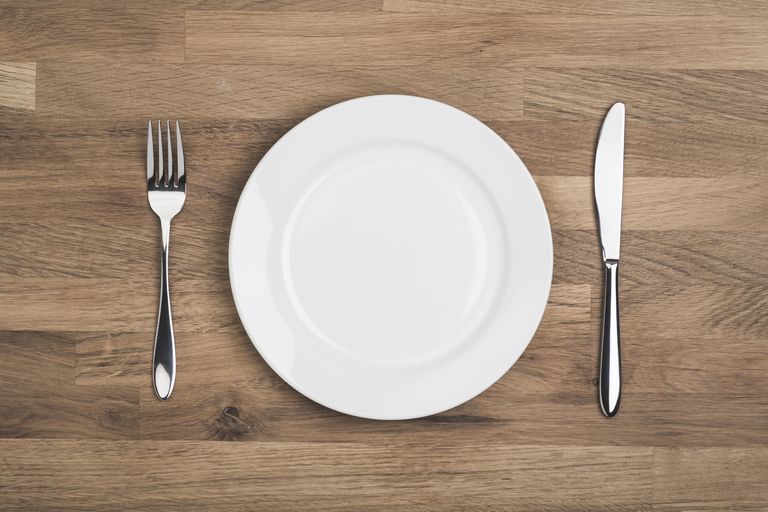What Is the Best Thyroid Diet?
Like many thyroid patients, you may wonder if there is a “best” thyroid diet?
The truth is that the best diet for you as a thyroid patient depends on your goals. Here are some of the key goals you may have, along with some helpful tips to achieve those goals.
If Your Goal Is Weight Loss
Difficulty losing weight is a common complaint of people with an hypothyroidism, an underactive thyroid. If you need to lose weight, the best thyroid diet for you is one that helps you lose weight.
There is, however, a multi-step process that can help you achieve this goal:
Optimize Your Thyroid Treatment
It’s not enough for your thyroid levels to be “normal” or fall within the reference range. In many cases, for you to lose weight, you need your thyroid levels to be “optimal.” That means your thyroid stimulating hormone (TSH) level would typically fall below 2.0, and your free T4 and free T3 would fall in the upper half of the reference range.
Optimize Blood Sugar and Leptin Levels
Do you know your leptin level? Fasting blood sugar? If you don’t, finding out is an important next step. And if these levels are imbalanced, you’ll need to use diet, supplements or medications to get them back on track.
Balance Other Hormones
If your sex hormones (estrogen, progesterone, testosterone), and adrenal hormones (cortisol, DHEA) are out of balance, this can make weight loss more difficult. Perimenopause and menopause, as well as estrogen dominance, can also cause a shift of weight to the belly, and make weight loss more difficult.
Lack of testosterone in men and women can also make it harder to build fat-burning muscle. Adrenal imbalances can make you tired, less responsive to thyroid treatment, and less able to lose weight. Evaluating these hormones and resolving imbalances may be a key step in helping you in your weight loss effort.
Get Enough Sleep
A lack of sleep has been proven to contribute to weight gain and makes your weight loss effort harder. Aim for seven or more hours per night.
Eliminate Toxins and Allergens
Wheat and gluten products have a relationship to autoimmune thyroid disease, and eliminating gluten entirely may help you reduce inflammation and lose weight. Similarly, other food allergens—dairy foods, soy, nuts, and certain fruits—can cause inflammation, and make it harder for you to lose weight. Consider an elimination diet or allergy testing to determine food sensitivities, and make dietary changes to reflect any allergies or problems.
Move
Muscle is more metabolically active than fat, raising metabolism is important for thyroid patients trying to lose weight. Daily movement—whether exercise or through regular physical activity—is crucial, so make sure you incorporate activity into your daily routine, for better health.
Change What and How You Eat
You may find that changing your diet will help. One suggestion is to reduce or eliminate sugar, limit fruit, dairy, and grains, and get your carbohydrates mainly from vegetables while rounding out your diet with lean proteins and healthy fats. In addition, eating two to three meals a day, no snacks, and avoiding food after 8 p.m. seem to help balance hunger hormones and blood sugar, and promote fat burning.
If Your Goal Is Thyroid Support
You may not be concerned about weight loss, but instead, you want to know what to eat to help and not hurt your thyroid function. Here are some tips:
Avoid Iodine Deficiency
Iodine is a building block for thyroid hormone. To that end, make sure that your diet is not iodine-deficient. The best way to include iodine in your diet is with iodine-rich foods—seaweed, shrimp, dried prunes, lobster, cranberries—or use an iodine-rich salt. (Himalayan salt is less processed than typical iodine-fortified table salt.)
Watch Goitrogens
Be careful about overdoing it with goitrogenic (goiter-promoting) vegetables like spinach broccoli, kale, cauliflower, and Brussels sprouts. When eaten raw and in large quantities, these vegetables can slow down your thyroid. Typically, steaming or cooking these veggies. Be especially careful about raw juicing.
Limit Soy
Also be careful about overdoing it with soy foods, which can block your body’s ability to absorb thyroid hormone.
Consider Eliminating Gluten
Gluten comes up again because, in some patients, sensitivity to gluten is the trigger for autoimmune thyroid disease. In a subset of patients, going gluten-free actually eliminates antibodies and causes a remission of thyroid disease. It’s worth a trial of a gluten-free diet—followed up by antibodies testing—to determine if eating gluten-free may help your thyroid function and/or symptoms.
Get Thyroid-Supportive Nutrition
Selenium, the B vitamins, and zinc are important for thyroid function. Make sure your diet has enough of these nutrients, or talk to your practitioner about adding supplements.
A Word From Verywell
If weight loss is your goal, remember that there is no magic answer, single supplement, or sole dietary change that will miraculously cause you to lose weight. But ensuring optimal thyroid function and focusing on diet, movement, nutritional, and lifestyle changes can all help you achieve greater success in your goal.
Source: verywell.com
“What Is the Best Thyroid Diet?” by: Mary Shomon


